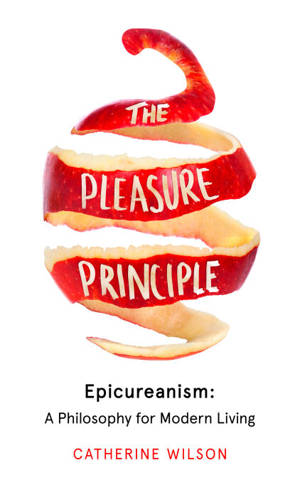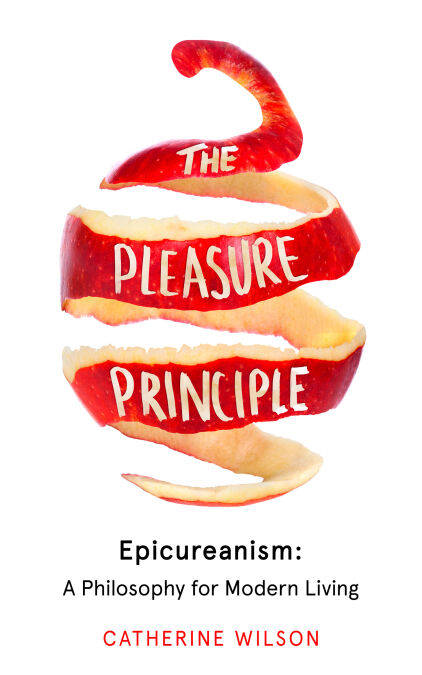
Bedankt voor het vertrouwen het afgelopen jaar! Om jou te bedanken bieden we GRATIS verzending (in België) aan op alles gedurende de hele maand januari.
- Afhalen na 1 uur in een winkel met voorraad
- In januari gratis thuislevering in België
- Ruim aanbod met 7 miljoen producten
Bedankt voor het vertrouwen het afgelopen jaar! Om jou te bedanken bieden we GRATIS verzending (in België) aan op alles gedurende de hele maand januari.
- Afhalen na 1 uur in een winkel met voorraad
- In januari gratis thuislevering in België
- Ruim aanbod met 7 miljoen producten
Zoeken
The Pleasure Principle E-BOOK
Epicureanism: A Philosophy for Modern Living
Catherine Wilson
E-book | Engels
€ 10,59
+ 10 punten
Omschrijving
In our troubled world, looking back to ancient wisdom can shed light on fresh solutions.
For years, many of us have upheld the Stoic belief in ‘no pain, no gain.’ But when the pace of modern life and the demands of jobs and family overwhelm us, punishing exercise regimes, productivity apps and early morning starts may not be the best solution.
According to the pleasure-centric philosophy of Epicureanism, life can be good without great sacrifice. By consciously practicing ‘choice and avoidance’ – by being strategic about our recreational, professional and familial pursuits – we can live with less fear and regret. By understanding our place in a world that came about by chance, we can gain greater perspective on our role within it and where our priorities should lie.
No honest philosopher can give you a formula for happiness, but in The Pleasure Principle, Professor Catherine Wilson explores how Epicureanism can provide a framework for thinking about life’s key issues, including family, death, politics, religion, wealth, science, and love.
For years, many of us have upheld the Stoic belief in ‘no pain, no gain.’ But when the pace of modern life and the demands of jobs and family overwhelm us, punishing exercise regimes, productivity apps and early morning starts may not be the best solution.
According to the pleasure-centric philosophy of Epicureanism, life can be good without great sacrifice. By consciously practicing ‘choice and avoidance’ – by being strategic about our recreational, professional and familial pursuits – we can live with less fear and regret. By understanding our place in a world that came about by chance, we can gain greater perspective on our role within it and where our priorities should lie.
No honest philosopher can give you a formula for happiness, but in The Pleasure Principle, Professor Catherine Wilson explores how Epicureanism can provide a framework for thinking about life’s key issues, including family, death, politics, religion, wealth, science, and love.
Specificaties
Betrokkenen
- Auteur(s):
- Uitgeverij:
Inhoud
- Aantal bladzijden:
- 304
- Taal:
- Engels
Eigenschappen
- Productcode (EAN):
- 9780008291716
- Verschijningsdatum:
- 1/05/2019
- Uitvoering:
- E-book
- Beveiligd met:
- Adobe DRM
- Formaat:
- ePub

Alleen bij Standaard Boekhandel
+ 10 punten op je klantenkaart van Standaard Boekhandel
Beoordelingen
We publiceren alleen reviews die voldoen aan de voorwaarden voor reviews. Bekijk onze voorwaarden voor reviews.









